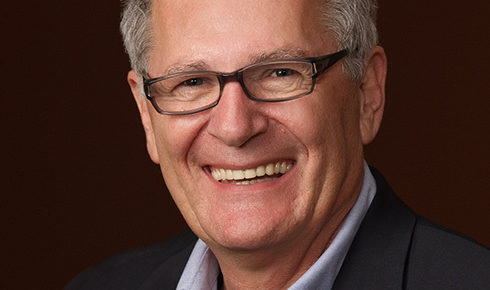
My word is “influence.” That word, influence, gives me clarity; I want to make a difference. Of course, I am an influence. We all are. But I constantly ask myself, “What kind of influence am I?”
I find it helpful to keep my assignment clear: God “has committed to us the word of reconciliation. Now then, we are ambassadors for Christ, as though God were pleading through us” (2 Cor. 5:19-20, NKJV).
Think of it: I am an ambassador. I am on assignment, representing Christ. He is communicating a message through me, a message that potentially reconciles people to God. What I communicate and how I communicate become paramount because I am speaking for Christ as His ambassador.
I sat down next to my nephew’s 3-year-old son, Nicklaus. We had never met. As I settled in beside him, he looked at his dad and said, “I don’t want to sit next to that man!” Of course, he meant me. He didn’t want to sit next to me! After a moment of nervous laughter by everyone around the table, Nicklaus blurted out, “I don’t like him; tell him to move!” Everyone broke into laughter—except his mother. She got up from the table and led Nicklaus off a few feet out of earshot. They weren’t gone very long, but I noticed a significant attitude change when they returned.
As an adult, I recognize more clearly than a 3-year-old child the impact of my attitude and words on others—well, not always. So often I share my ideas and opinions, hoping to make a difference; but occasionally I forget the most crucial element of relationships: speaking in love. Too often I forget that I’m speaking for Christ.
The culture I find myself in is deeply divided. It’s a culture war, and the battle lines have been drawn. Opinions are clearly and passionately articulated, but the spirit in which they are spoken leads too frequently to further division and anger. This was evident in a recent encounter.
After a Sunday morning service, I was abruptly confronted by a man, a big, angry man. He challenged me on the fact that I had not spoken about the results of the election that had just taken place. As calmly as possible, I tried to talk him down, but he was not to be denied his opportunity to vent. After finishing with me, he proceeded to ask people around him who they voted for. He soon discovered his behavior and tone were not appropriate, and would not be tolerated.
Such encounters are not that unusual these days. How can I, as a follower of Jesus, be an influence in these divisive times, in this culture pitted against itself?
It seems to me that being right in a political debate is not as important as making a positive difference. After all, I am Christ’s ambassador. I want to stay on message, and I want to communicate in a way that provides the best chance to be heard.
It is so easy to get caught up in the spirit of the age. But I dare not lose focus or compromise the mission God has given me in an attempt to win a political argument; it only leads to futility.
Lord, help me represent You well. May I choose the most excellent way and truly love people, even the challenging ones. May I focus my thoughts and conversation on things that make an eternal difference.
“Do not be overcome by evil, but overcome evil with good” (Rom. 12:21).
Prayer Points
- Pray that we, as church leaders, will focus tenaciously on the Great Commission Jesus has given us.
- Pray that what you communicate, and how you communicate it, will reflect the fact that you are Christ’s ambassador.
- Pray that God will give us great influence for Christ and His kingdom in these divisive times.
Share your thoughts. See comments below, and add your own.


